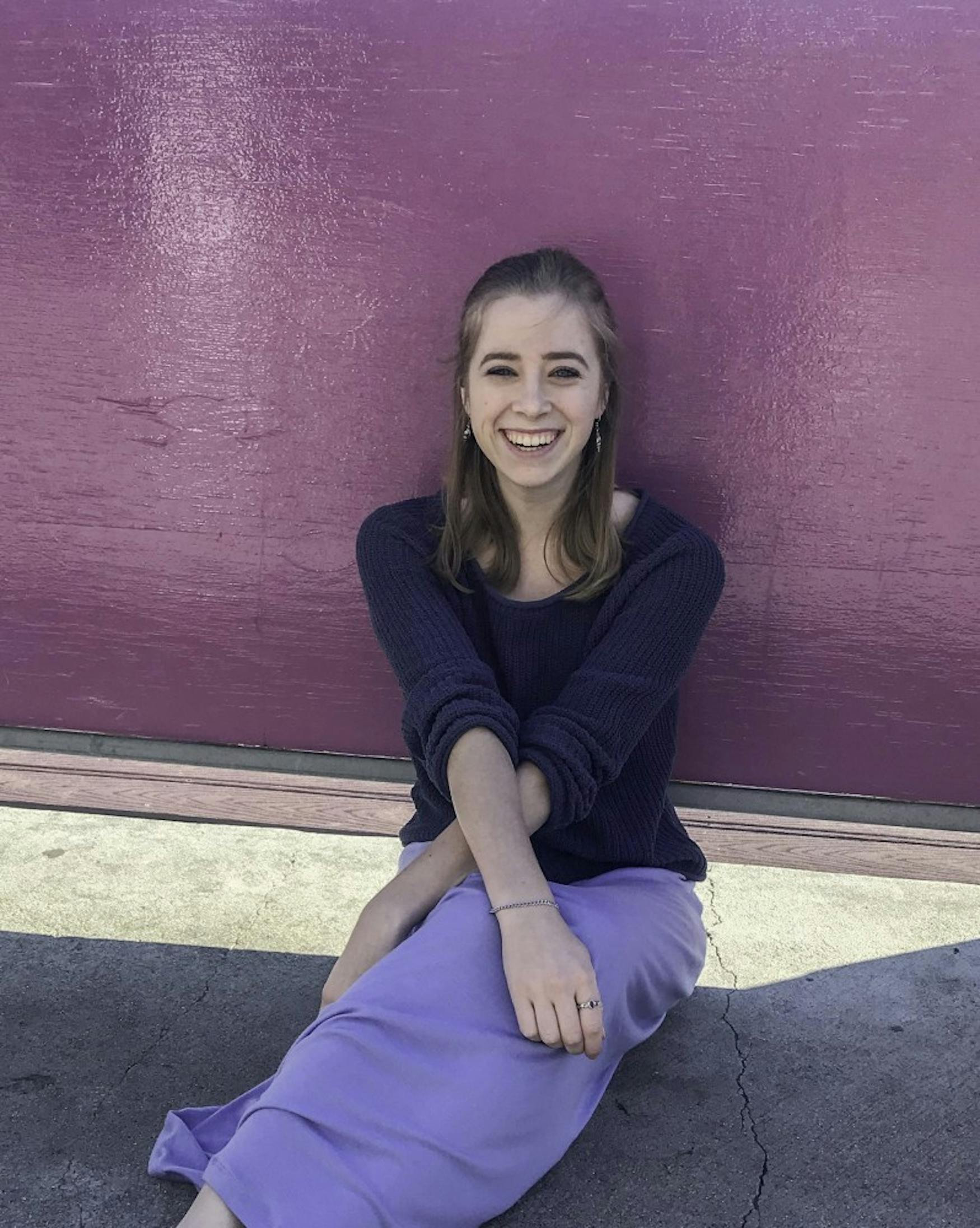Interview with Olivia Ellson ’21
JustArts: Tell us a little bit about yourself and your experience with theater.
Olivia Ellson: I’m a sophomore this year, majoring in English with a minor in Theatre. I started doing theatre in high school, coming at it mostly from an acting perspective, but over the last couple of years I’ve been moving towards the writing-and-directing side of things. Earlier this semester, my play “Forecast” was featured in the Undergraduate Theater Collective’s student-written play festival, Quickies, and obviously I directed “Much Ado,” as well.
JA: What made you want to direct “Much Ado About Nothing”?
OE: I love reading, watching and working with Shakespeare in any capacity, and “Much Ado About Nothing” is one of my favorite of his comedies. I was originally drawn to the show because of the love story between Beatrice and Benedick, but I as I read over the play more, I became equally interested in the romantic tragedy of Claudio and Hero, not to mention the outrageous comedy of the Watchmen. It’s been a dream of mine for years to work on a production of it, so I’m very grateful to Hold Thy Peace for giving me this opportunity.
JA: One of the premises of your version of the play is having the story set in a school. Was it difficult to adapt the changes over a classic?
OE: Honestly, no, it wasn’t really all that difficult. One of the reasons Shakespeare is so brilliant, and why his plays have been so popular for so long, is that they are so easily transferable across time and place. When you break down the plot, it’s essentially a story of first love, gossip, slut-shaming and melodrama; there’s nothing more high school than that. Of course, some of the language is a little antiquated, but once you find modern day equivalents, the audience can follow along pretty quick: Soldiers become athletes, a wedding becomes a promposal, etc. Underneath those surface level changes, the action and the emotions of the story stay the same.
JA: “Much Ado About Nothing” is famous for the bickering between characters, and a large part of that is relies heavily on the dialogue, which can be quite demanding for the cast. Has that been a challenge for the production?
OE: One of the biggest challenges of this production was our very short time frame. From our first rehearsal to opening night, we had only five weeks, even less because February break was stuck in the middle of that, so we ended up having only 19 rehearsals. The amount of fast-paced, wordy dialogue that had to be memorized in that amount of time was definitely difficult, and it’s a testament to the incredible talents and hard work of the cast that we managed to pull it off, and I really cannot thank them enough.
JA: After this show, are there other plays or genres that you would like to work on in the future?
OE: “Much Ado” has been such a whirlwind, I’ve barely had a moment to think about what comes next. I think I want to take a break from Shakespeare for a while and do something more modern next, but I don’t have anything specific in mind.
JA: Is there anything else you would like to add?
OE: I want to give a little shout-out to everyone in the cast, crew, and Hold Thy Peace. Their support, their passion, and their absolutely fantastic work is what really made “Much Ado” possible.
—Luke Liu




Please note All comments are eligible for publication in The Justice.